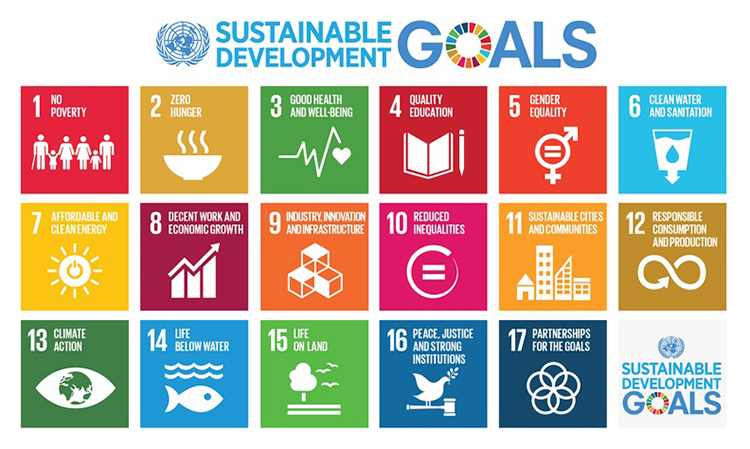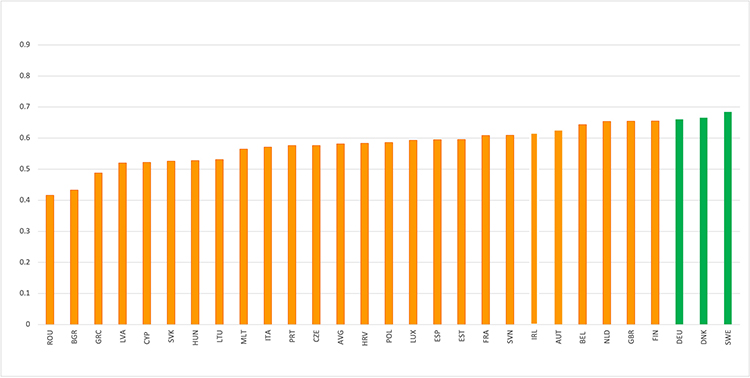New UCD study tracks SDG progress across the EU as 2030 deadline looms
Posted 03 July, 2023

European countries are at risk of failing to meet their sustainable development targets, according to (opens in a new window)a new UCD study tracking SDG progress across the European Union.
Assessing the United Nation’s Sustainable Development Goals (SDG) performance for each EU member on a peer-basis, Professors (opens in a new window)Enda Murphy and (opens in a new window)Paul Walsh, and Ethan Murphy have published an index of the best and worst performers (opens in a new window)in the journal PlosOne.
Their study shows that while most European countries are showing leadership on some SDG targets, the average performance across the EU is less than two-thirds (58%) the aggregate of the best performers.
Top best performers are Sweden, Denmark, and Germany while the bottom three are Greece, Bulgaria, and Romania. Ireland ranks 9th in the 28 nation index.
"Achieving the SDGs will allow Europe's national government meet their obligations on social, economic and environmental responsibilities for this and future generations,” said Professor Murphy, from the UCD School of Architecture, Planning and Environmental Policy.
“Our study shows that there is wide variation across Europe in policy implementation for the SDGs and that EU nations can learn from each other in best practice policy for achieving SDG targets.
Adding: “In overall term though, it demonstrates that action on SDG implementation by European governments is too slow and needs considerable acceleration if the 2030 Agenda is to be achieved."

EU performance in the Composite SDG Index
Adopted in 2015 by 193 member states, the SDGs represent the most prominent example of an international effort to achieve a set of time-sensitive sustainable development targets.
Seven years now remain until 2030 – the date chosen for fulfilling the SDGs but robust and accurate methods for assessing their progress remains lacking.
This new study addresses this critical knowledge gap by providing the means to accurately identify national ’problem areas’ and thereby accelerate SDG achievement.
Specifically, an indicator-based approach has been used to create a composite index containing 166 unique SDG indicators that assess a nation’s SDG performance compared to the best and worst performers.
The new study has significant potential to accelerate the development of efficient national SDG policy by allowing policymakers, researchers and other stakeholders to easily assess a country’s SDG performance in a variety of critical dimensions, and to view best practice across Europe.
There is an urgent need to double down on implementing the 2030 Agenda as a recent report from the Worldwide Fund for Nature (WWF) found that Earth’s species have experienced an average 69% decline in numbers between the years 1970 and 2018.
Humanitarian crises are also mounting as the number of forcibly displaced individuals now exceeds 100 million, reaching levels similar to those seen during the Second World War
The COVID pandemic too has reversed years of progress in reducing global poverty and food insecurity.
The new index is particularly pertinent given that for the first time the EU has embarked on the creation of a voluntary review assessing its members progress towards SDG achievement.
The European Commission will present this first review at the UN High Level Political Forum (HLPF) on Sustainable Development at UN Headquarters in July.
By: David Kearns, Digital Journalist / Media Officer, UCD University Relations
To contact the UCD News & Content Team, email: newsdesk@ucd.ie






